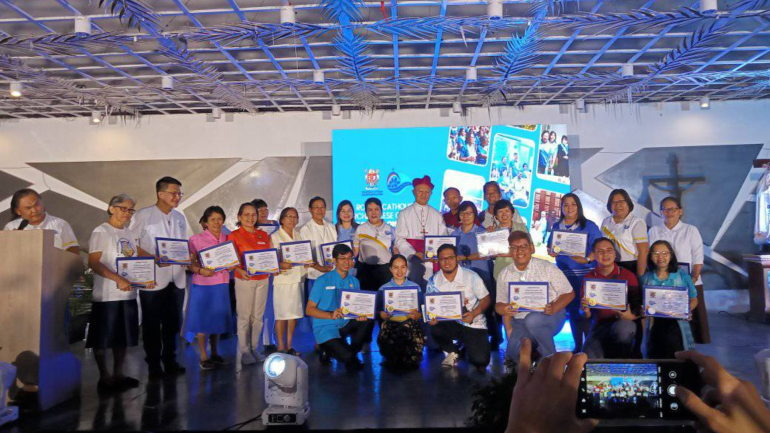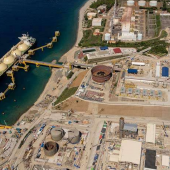Cebu archbishop foresees growth of Laity and new dioceses with Sugbuswak Proposal

After the 3rd General Assembly of the Archdiocesan Commission on the Laity (ACL) in Cebu City, Cebu Archbishop Jose S. Palma shared his optimism regarding the growth of the laity and the potential approval of “Sugbuswak,” a proposal to create two new dioceses within the Archdiocese of Cebu.
Speaking to Radio Veritas Asia, Archbishop Palma expressed his confidence that Rome will approve the Sugbuswak proposal within the year.
Sugbuswak, a coined term from “Sugbu,” the old name for Cebu, and “buswak,” meaning to bloom, envisions the division of the archdiocese into three distinct dioceses.
Under the proposal, a new diocese in the south would be based at the Archdiocesan Shrine of St. Catherine of Alexandria in Carcar City, serving a Catholic population of over 1.21 million.
In the north, the diocese would center around the Santo Tomas de Villanueva Parish in Danao City, one of the Philippines' oldest parishes, established in 1671.
“The ball is in the hands of the Vatican, but I am optimistic that approval will come before the end of the year,” Archbishop Palma stated.
The assembly, held on Saturday, August 24, at the IC3 Convention Center in Cebu City, concluded with a Mass celebrated by Archbishop Palma alongside three diocesan priests.
During the event, 80 of the 85 accredited lay organizations ratified amendments to the COL Statutes, a move that deeply impressed the archbishop.
In his homily, Archbishop Palma highlighted the vital role of the laity in building up the Church.
“We are reminded that God loves us all and considers us important. The greatest saints are not the first apostles but rather the parents of Jesus—Joseph, a carpenter and foster father of Jesus, and Mary, His mother. The first saints of the Philippines, Saints Lorenzo Ruiz and Pedro Calungsod, were also laypersons,” he emphasized.
The archbishop stressed that although the roles within the Church differ, all members are fundamentally equal. “We are all fundamentally equal but functionally different,” he said, pointing out that bishops, priests, and laypeople share a common responsibility in nurturing the Church.
Looking ahead, Archbishop Palma identified several key factors that will shape the growth of the laity in the archdiocese: the establishment of a lay formation center, greater lay participation in parish pastoral councils, and the expansion of the ACL into the proposed daughter dioceses.
Monsignor Jose Tajanlangit, one of the spiritual directors of the ACL, echoed Palma’s optimism, noting that the laity in Cebu have already begun to “bloom” ahead of the diocesan reconfiguration.
“The laity has been blessed with the outpouring of the Holy Spirit and will carry this vibrancy with them to either the north or the south, where the new dioceses will be established,” Tajanlangit said in Cebuano.
The assembly served as a “renewal” for the laity, empowering them to serve their parishes with confidence, according to Tajanlangit.
Mrs. Fe Barino, Chairperson of the ACL, added that the amendments to the statutes were strategically made in anticipation of the creation of the new dioceses.
“Under the amended statutes, each lay organization, movement, and service will have its own governing body, enabling them to operate effectively within their respective daughter dioceses,” she explained.
The Sugbuswak configuration is already reflected in the ACL’s leadership, with board members representing the central archdiocese as well as the north and south districts. “We designed this as a template in preparation for the approval of Sugbuswak,” Barino said.
Despite logistical challenges, the assembly’s preparations were completed smoothly, with media materials and other resources finalized in just under two weeks—a process that would typically take months.
“This is all God’s work, and we are very grateful,” Barino concluded.
Radio Veritas Asia (RVA), a media platform of the Catholic Church, aims to share Christ. RVA started in 1969 as a continental Catholic radio station to serve Asian countries in their respective local language, thus earning the tag “the Voice of Asian Christianity.” Responding to the emerging context, RVA embraced media platforms to connect with the global Asian audience via its 21 language websites and various social media platforms.














